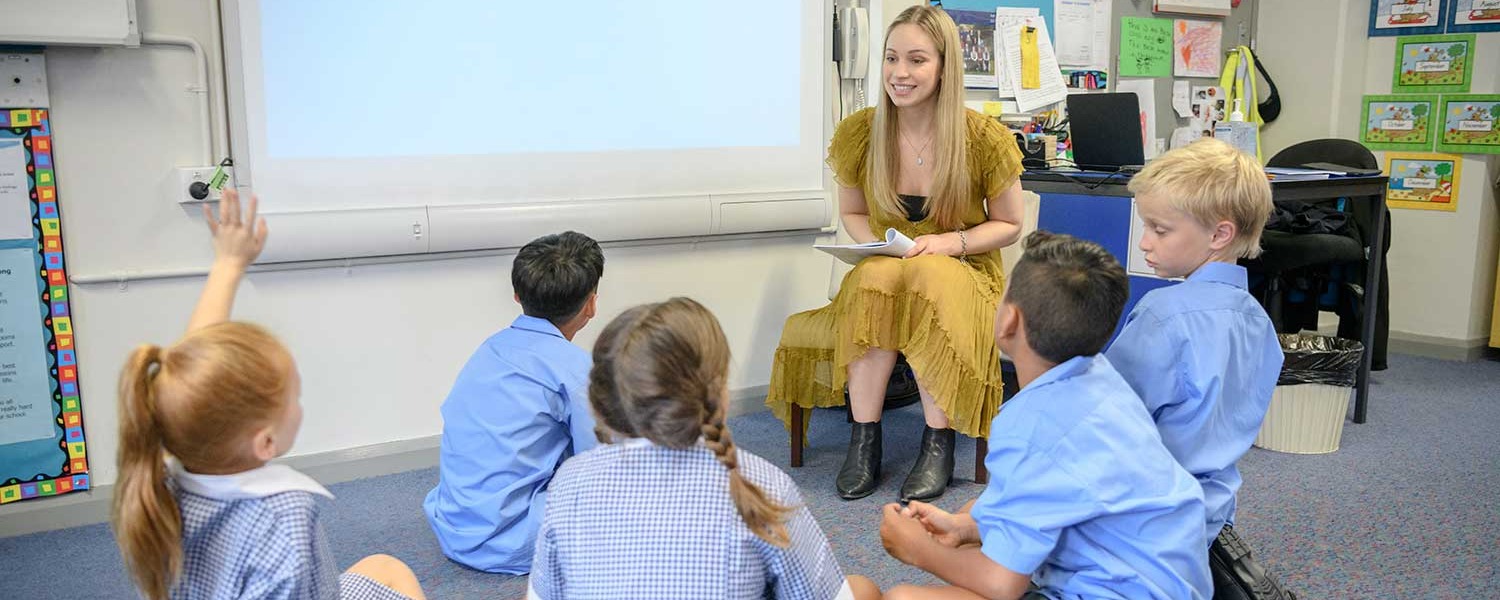We know literacy is important. Unfortunately, many Australian students move through the years of schooling without achieving the literacy they need for essential daily activities.
When we think about building literacy, we most likely think about the English learning area. But think back to your time at school. You’ll probably remember you needed good literacy skills in learning areas beyond English.
Your knowledge and skills across most learning areas were gained and measured through your literacy skills. For example, your ability to write an essay in history, produce a report in science and explain your working out in mathematics contributed to your grade. Research shows how students’ literacy skills influence their achievement in mathematics and science.
The Australian Curriculum positions literacy as a general capability to be taught in every learning area. Despite this, few Australian schools have whole-school literacy policies that include practical plans for building student literacy across learning areas. That’s the troubling conclusion from my analysis of Australian and UK school literacy policies for my upcoming book.
My earlier research also shows that many Australian secondary teachers do not believe their schools have a whole-school approach to supporting struggling literacy learners. This is concerning, as students who struggle with literacy won’t only struggle in English.
It’s not that the push to make every teacher a teacher of language and literacy is new. It has been discussed since the 1960s. However, there are questions about how closely Australian schools meet this expectation.

What kinds of literacies do we need?
Many literacies are needed to boost achievement beyond English. When we talk about whole-school literacy, we often refer to content area literacy and disciplinary literacy.
Content area literacy refers to the literacy knowledge, strategies and skills we use across the learning areas. For example, we don’t only need reading comprehension in English. It’s needed in every learning area that requires students to read.
Disciplinary literacy relates to the literacy knowledge, strategies and skills that we use to achieve learning purposes that are unique to a learning area. For example, writing a science report requires the correct scientific language, formatting, referencing and diagrams. It calls for specific literacy skills unique to science.
Related Articles

This uni program is changing the game for mob
From one students’ first time in a classroom to a mum-of-three’s return to learning, these real-life stories show what’s possible when universities open doors and open minds.
Read more

Where learning meets care
The University of Newcastle’s community clinics are providing life-changing services and transforming the wellbeing of 5,000 people a year.
Read more

More and more Australian families are homeschooling. How can we make sure they do it well?
Across Australia, more families are choosing to homeschool.
Read more

Pathway to purpose
From limited beginnings to limitless dreams - equity in education is giving Arthur Demetriou the chance to change the face of medicine.
Read more

Teaching the Hunter
Eric Roach was just 19 when he graduated from Newcastle Teacher's College in 1953. His time there launched a career that would span almost four decades, and instilled in him a passion for teaching that would transcend generations.
Read more

How early entry schemes help Year 12 students experiencing disadvantage
During September, many Australian universities start making early offers to Year 12 students for a place next year. This is ahead of the main rounds of offers, due in January.
Read more
What’s missing from school literacy policies?
Whole-school literacy policies plan for all learning areas to include a focus on literacy achievement.
However, analysis of Australian schools’ literacy policies reveals many gaps in these policies. Part of the problem is an excessive focus on NAPLAN testing. There is also limited attention to making the most of literacy resources such as school libraries, especially by comparison with policies in the UK.

School literacy policies commonly fail to include:
A definition of literacy that considers both content area literacy and disciplinary literacy, as well as the wide range of literacies that the school seeks to develop in its students. This should not be limited to the narrow framing of literacy tested in NAPLAN.
Detailed and explicit literacy targets for building content area and disciplinary literacy, as well as meeting other goals such as increasing students’ information literacy. Targets are needed so the policy isn’t just aspirational; it actually drives change. There should also be detailed implementation planning that allocates literacy responsibilities across the school.
An explanation of how improvement in literacy will be measured to determine the effectiveness of the policy. Don’t just assess changes in high-stakes literacy-testing scores. Look at building literacy engagement. This relates to students’ attitudes toward and performance of practices such as reading for pleasure. Research has found a relationship between reading for enjoyment and reading comprehension, a key content area literacy skill.
Plans for identifying and supporting students who are struggling with literacy. These plans should cover all schooling years and learning areas. Include plans for professional development of teachers who lack confidence in supporting students’ complex literacy needs among the many competing demands of their role.
Consideration of how to make the most of the literacy resources within the school. These resources include but are not limited to the school library and its staff.
Attention to writing – the majority of Australian schools’ policies did not mention handwriting. Most of the UK policies did. Australian school policies also rarely mentioned typing. A whole-school literacy policy should include these skills, given their importance across the curriculum and the years of schooling.
COVID-related literacy issues – school policies may also need to include strategies to overcome any negative impacts of pandemic-related education interruption on students’ literacy learning.
In general, Australian school literacy policies are typically far shorter and less detailed than their UK equivalents. Australian schools and their students will benefit from more effective whole-school literacy planning.
Literacy is not just the responsibility of the English teacher. Every teacher is a literacy teacher.
This article is republished from The Conversation under a Creative Commons license. Read the original article.
